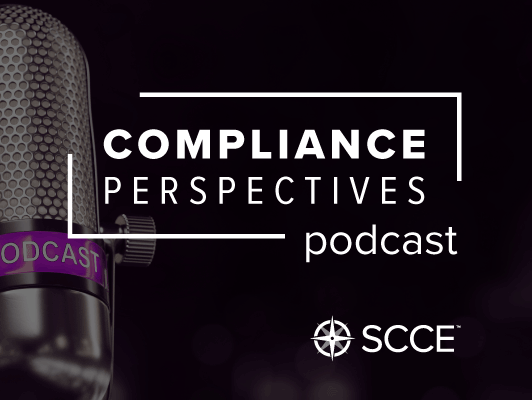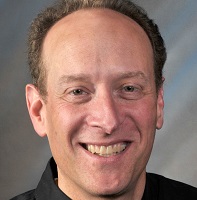Podcast: Play in new window | Download (Duration: 14:25 — 13.3MB)
Subscribe: Apple Podcasts | Email | TuneIn | RSS
On November 16, 2020 the Office of Inspector General (OIG) at the Department of Health and Human Services (HHS) issued a Special Fraud Alert focused on “fraud and abuse risks associated with the offer, payment, solicitation, or receipt of remuneration relating to speaker programs by pharmaceutical and medical device companies.”
To better understand the alert and the compliance implications, we sat down with Maddie Bainer, Senior Counsel, Office of Counsel to the Inspector General. In this podcast she explains that the alert was triggered by what OIG saw as a troubling trend of manufacturers sponsoring events in which healthcare professionals were paid to speak to their peers at entertainment and sports venues and very high end restaurants. There were even cases in which the physician paid to speak never actually spoke, and the audience was made up of individuals which no professional reason to be in attendance.
Such practices had already led to at least one high profile settlement, and to curb the practices the OIG issues the Alert.
The Special Fraud Alert provides a list of “suspect characteristics”, Bainer explains, that could be indicative of problematic behavior:
- The company sponsors speaker programs where little or no substantive information is actually presented;
- Alcohol is available or a meal exceeding modest value is provided to the attendees of the program (the concern is heightened when the alcohol is free);
- The program is held at a location that is not conducive to the exchange of educational information (e.g., restaurants or entertainment or sports venues);
- The company sponsors a large number of programs on the same or substantially the same topic or product, especially in situations involving no recent substantive change in relevant information;
- There has been a significant period of time with no new medical or scientific information nor a new FDA-approved or cleared indication for the product; 11 Id. at 23. 5
- Health Care Professionals (HCPs) attend programs on the same or substantially the same topics more than once (as either a repeat attendee or as an attendee after being a speaker on the same or substantially the same topic);
- Attendees include individuals who don’t have a legitimate business reason to attend the program, including, for example, friends, significant others, or family members of the speaker or HCP attendee; employees or medical professionals who are members of the speaker’s own medical practice; staff of facilities for which the speaker is a medical director; and other individuals with no use for the information;
- The company’s sales or marketing business units influence the selection of speakers or the company selects HCP speakers or attendees based on past or expected revenue that the speakers or attendees have or will generate by prescribing or ordering the company’s product(s) (e.g., a return on investment analysis is considered in identifying participants);
- The company pays HCP speakers more than fair market value for the speaking service or pays compensation that takes into account the volume or value of past business generated or potential future business generated by the HCPs.
These characteristics should be noted not just be manufacturers but also by practitioners and the health care providers that employ them. As she points out, the Anti-Kickback statue applies both to those offering the remuneration and those who receive it.
Listen in to learn more about what’s in the Special Fraud Alert and how your compliance program should reflect the direction in it.


